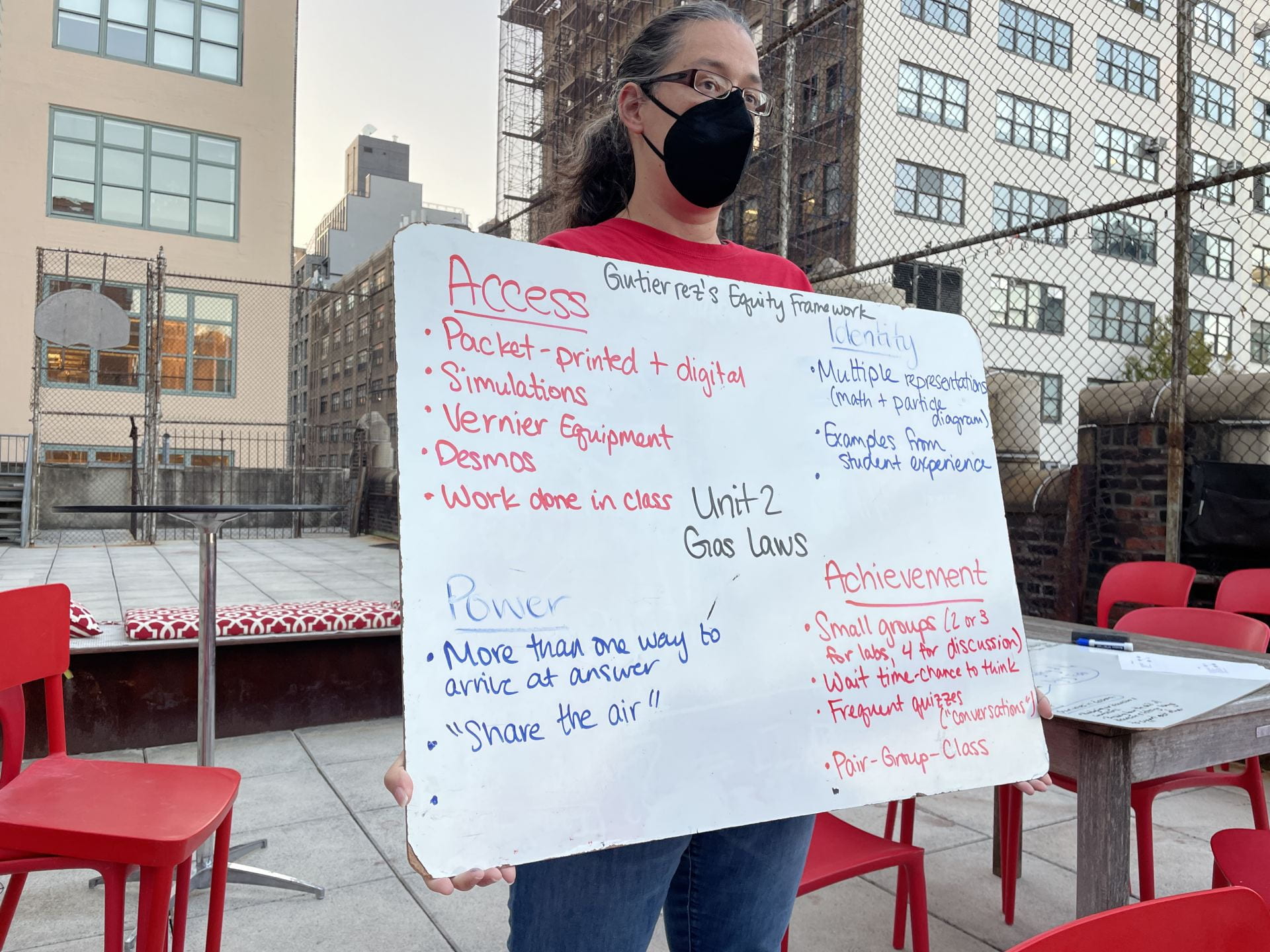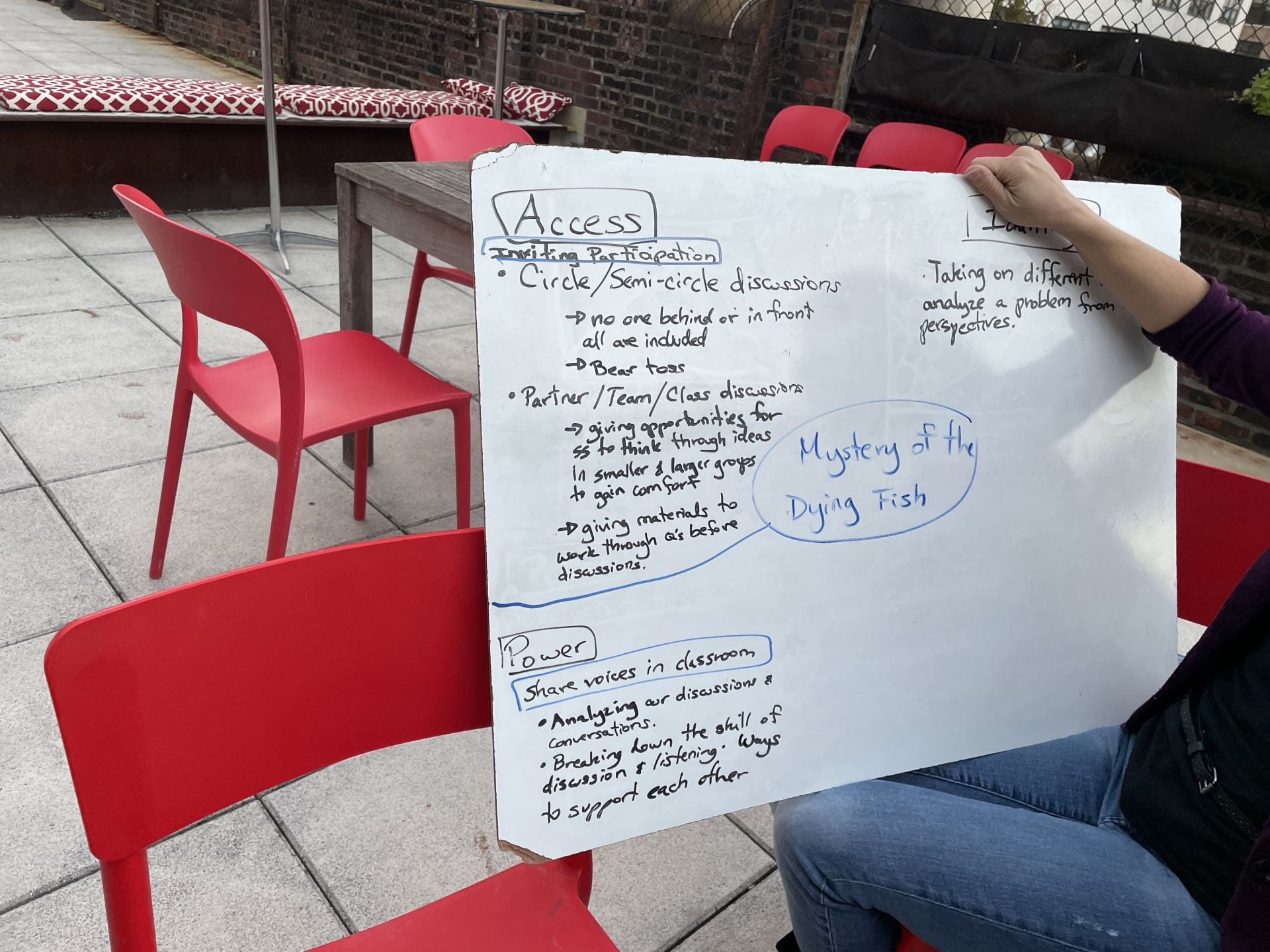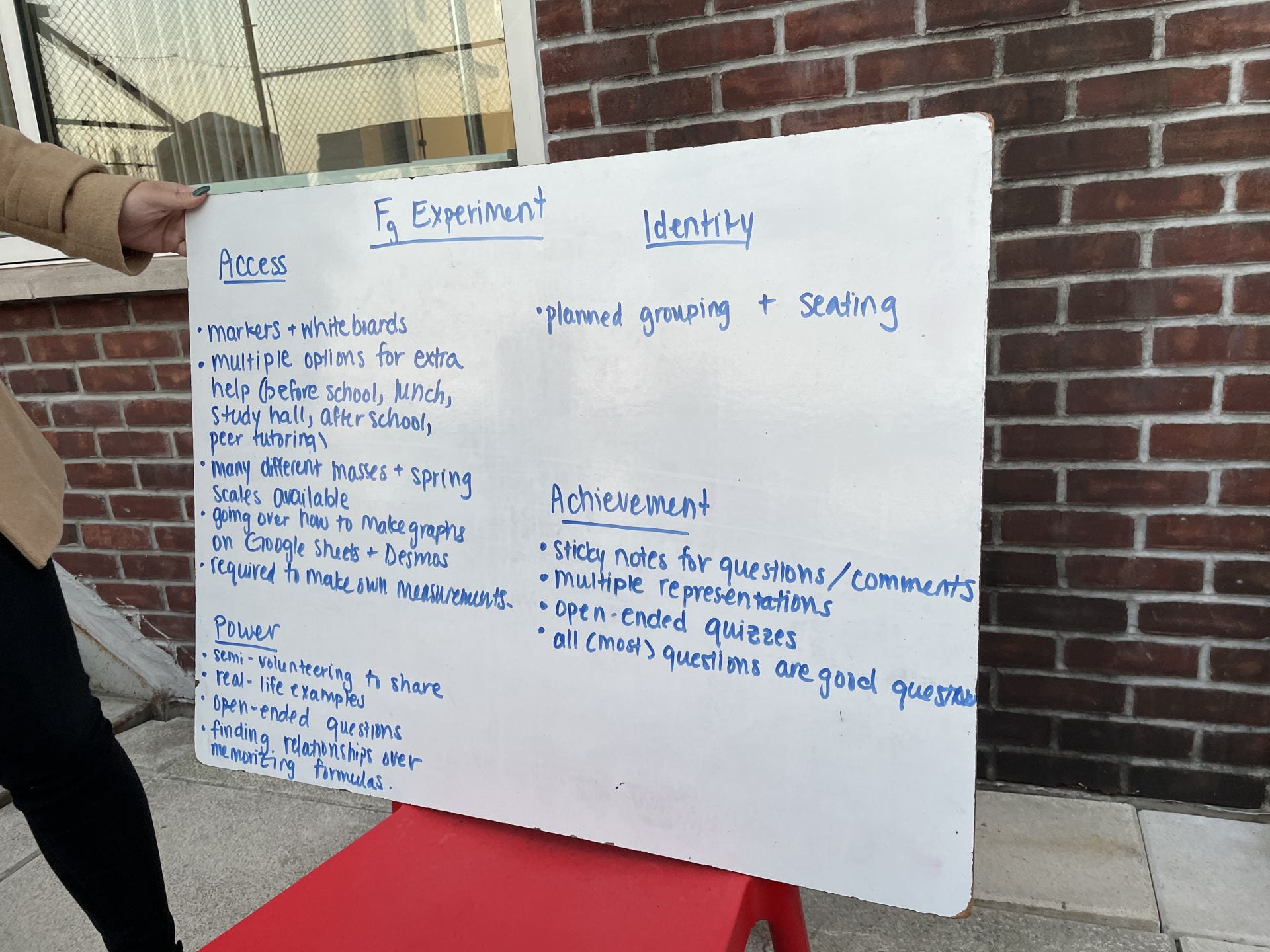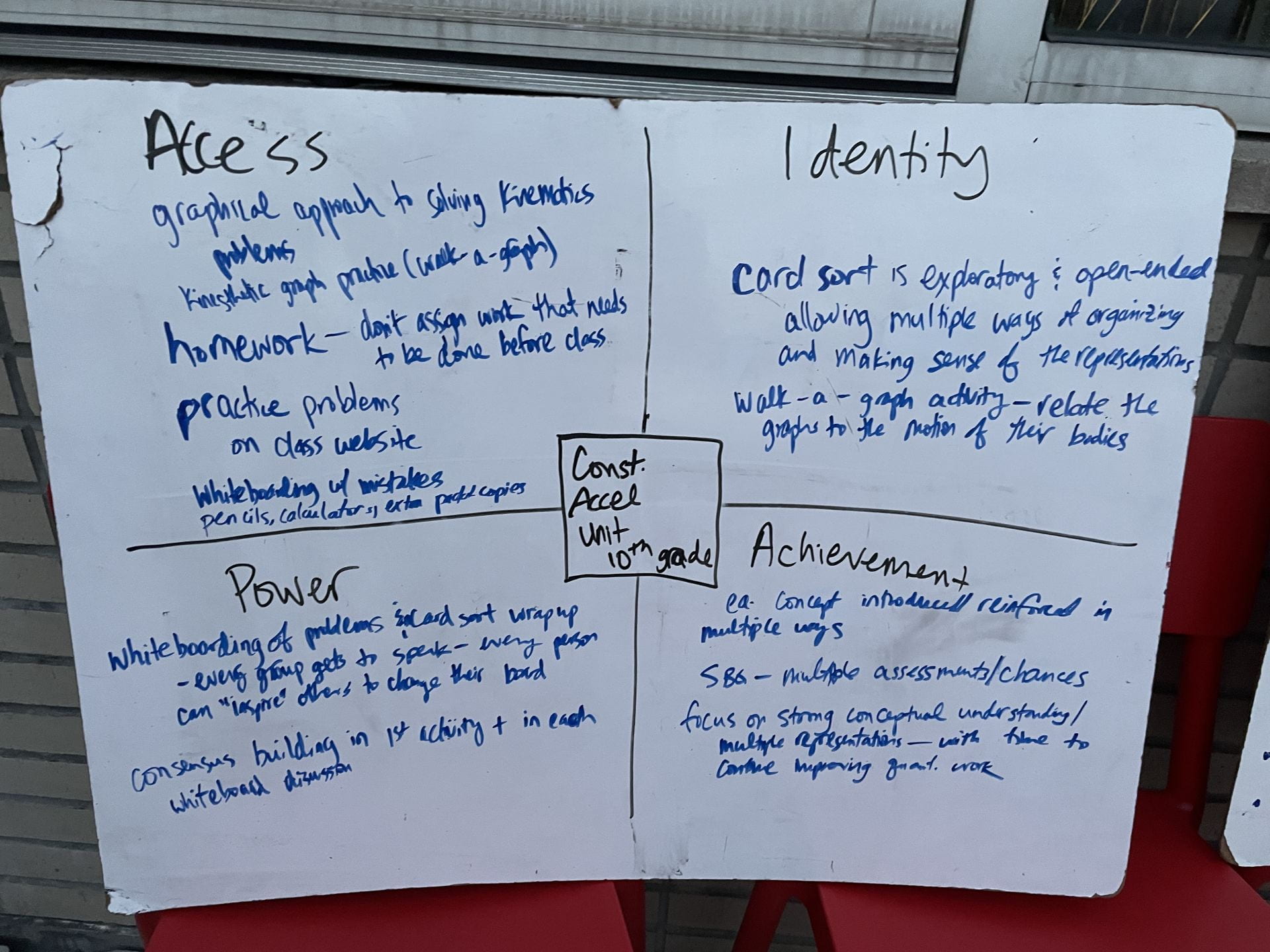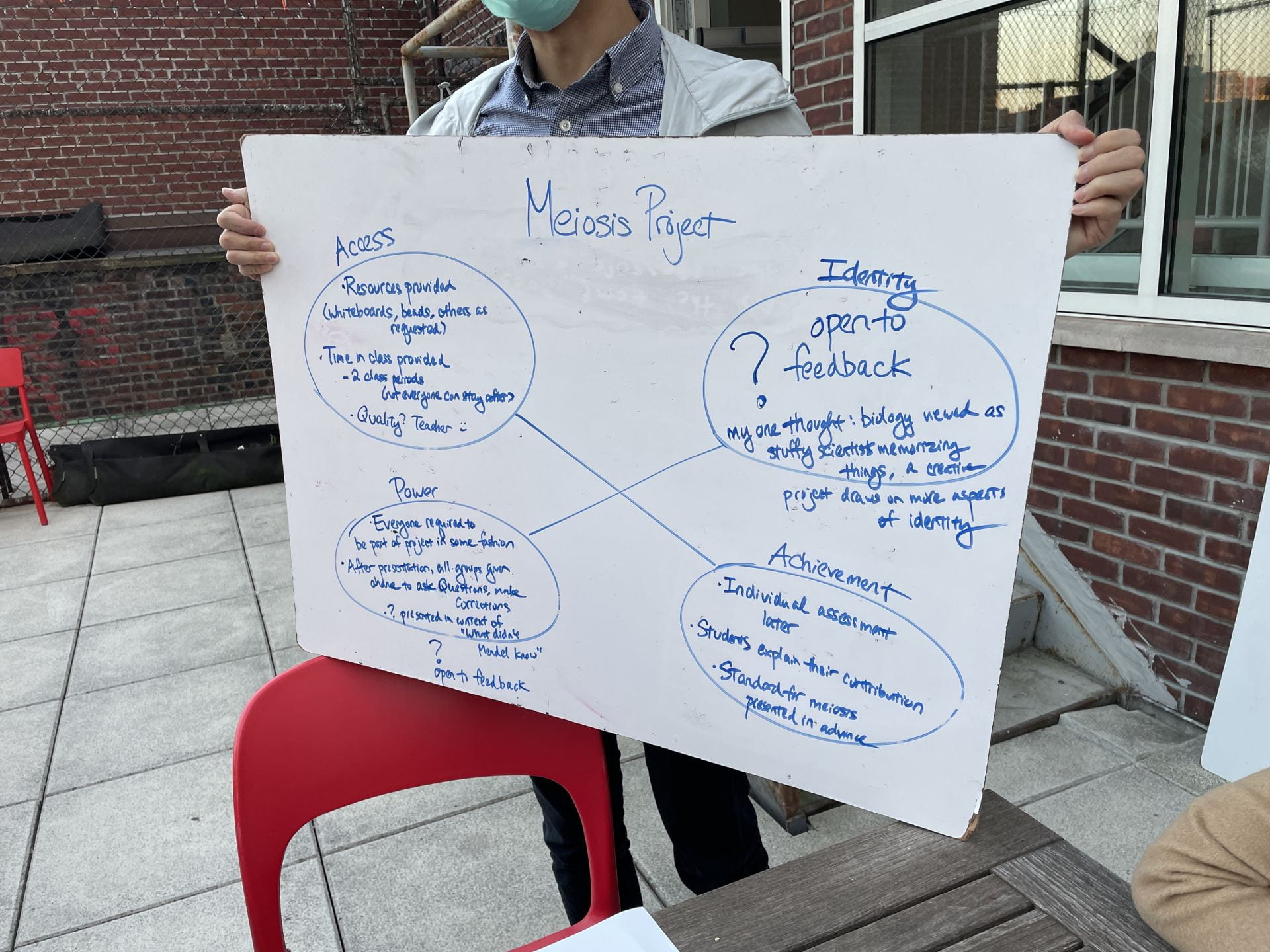Submitted by: Kelly
During our May meeting, we did some reading, reflection, writing, and commenting (and then discussion) on the bigger, conceptual level about science—based on a prompt from Dr. Chanda Prescod-Weinstein’s recent book The Disordered Cosmos. We talked about the ways that science is inextricably linked to power, whether we could imagine a future of science that wasn’t that way, and the connections to and implications for our classes.
Next, we had two shares of ways that we have worked on incorporating anti-bias/anti-racist teaching into our pedagogy and/or curriculum this year. I (Kelly) shared about a sequence of activities from my 11th grade sustainable energy class, and Daniel shared about an ongoing intervention he has been doing with one of his 9th grade classes where the effects of the students being grouped by their tracked math classes seems to be impacting the motivation, participation, and the overall way that 9th graders have approached Chemistry this year. In our discussion, we connected the situation to the starting prompt and messages about power this grouping sends and reinforces for students. Links to documents, student responses, etc can be viewed in the slides from the meeting (linked below).
Our third activity was to create a Jamboard together (also linked in the slides) where we talked about what the 2.0 version of the science ABAR work could be, what we want to learn, and what things we could get started on next week in our final meeting to set us up to start the year with momentum. We talked about several ideas (which can be seen on the Jamboard), including more discussion of what Daniel shared and what we can do next year when students in 9th and 10th grade classes will be back to a less “tracked” experience to better understand the way that the math tracking impacts the experience and approach of our students in our untracked science classes.
Here are the slides from the meeting.
![]()
